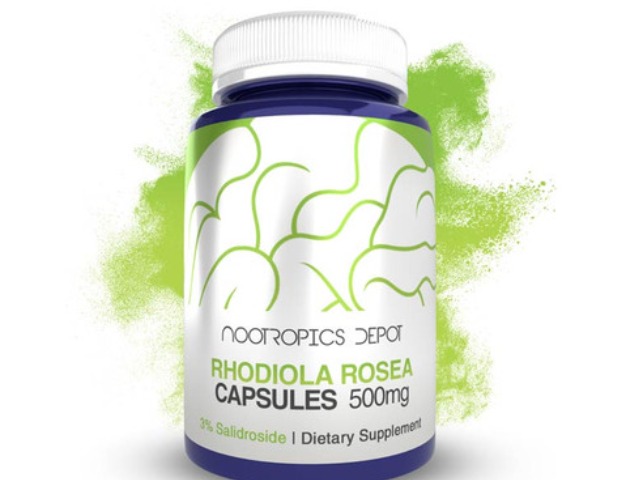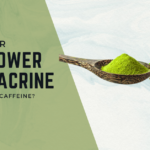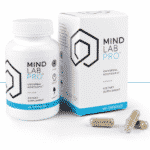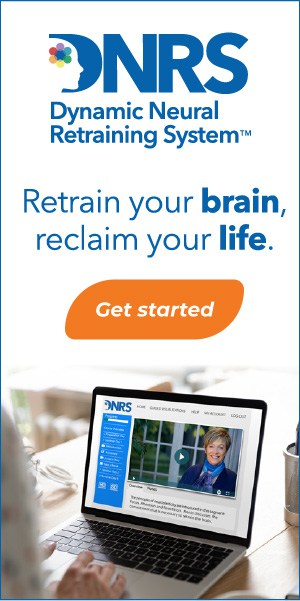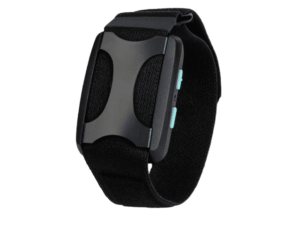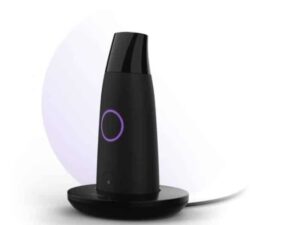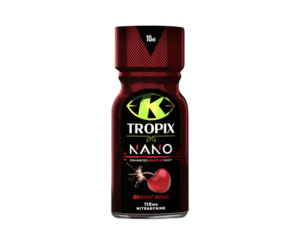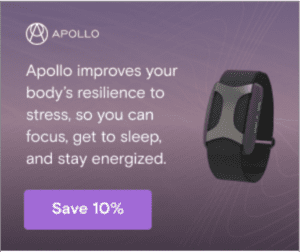In the quest for natural solutions to combat stress and enhance cognitive performance, Rhodiola Rosea has emerged as a potent adaptogen with a long history of traditional use and modern scientific validation. At Holistic Nootropics, we are dedicated to providing comprehensive, evidence-based information on natural cognitive enhancers like Rhodiola Rosea, emphasizing the intricate connection between mind and body health.
Biohack Your Brainpower
Introduction
Rhodiola Rosea, also known as golden root or arctic root, is a perennial flowering plant native to the cold, mountainous regions of Europe and Asia. As an adaptogen, Rhodiola Rosea helps the body adapt to and resist various stressors, both physical and mental.
Learn More: What are Adaptogens? Complete Guide
Traditionally, Rhodiola Rosea has been used to combat fatigue, improve mood, and enhance physical and mental performance. Today, it is gaining recognition as a potent nootropic supplement, backed by a growing body of scientific research.
Nootropics Depot is a trusted supplier of high-quality botanical supplements like Rhodiola rosea. Their capsules contain 500mg of root extract standardized to provide 3% salidroside, along with rosavins. Preliminary research suggests Rhodiola may help moderate the body’s stress response and support physical and cognitive performance. Nootropics Depot implements quality control methods like third-party testing to ensure product purity and concentration of active components. Their Rhodiola extract is sourced ethically and is GMP certified.
- GMP certified and third-party tested
- Potential to support endurance and energy levels
- Adapts body’s stress response
- Ethically sourced ingredients
- Effects still require further study
- Interindividual variability in response
- Potential contraindications with other medications
- Temporary side effects possible at high doses
Chemical Composition of Rhodiola Rosea
The primary active compounds in Rhodiola Rosea are rosavins (rosavin, rosin, and rosarin) and salidroside. These compounds are believed to be responsible for the plant’s adaptogenic and nootropic effects.
Standardization is crucial when selecting a Rhodiola Rosea supplement to ensure consistent potency and quality. Most high-quality extracts are standardized to contain 3% rosavins and 1% salidroside, mimicking the natural ratio found in the plant.
Potential Health Benefits of Rhodiola Rosea
Rhodiola Rosea offers a wide range of potential health benefits, supported by both traditional use and modern scientific research:
- Stress reduction and anti-fatigue effects
- Cognitive enhancement and neuroprotection
- Mood improvement and antidepressant effects
- Physical performance enhancement
Clinical trials have demonstrated Rhodiola Rosea’s ability to reduce stress and fatigue, with participants reporting improved mental performance and reduced burnout symptoms.[1] Animal and human studies suggest that Rhodiola Rosea may enhance memory, learning, and concentration, potentially offering neuroprotective benefits against cognitive decline.[2]
In terms of mood support, Rhodiola Rosea has shown promise as a natural antidepressant, with some studies suggesting effects comparable to conventional antidepressants, but with fewer side effects.[3] Athletes and fitness enthusiasts may also benefit from Rhodiola Rosea’s ability to enhance physical performance, improve endurance, and reduce muscle damage and fatigue.[4]
| Benefit | Key Evidence |
|---|---|
| Stress reduction | Clinical trials show reduced stress and fatigue |
| Cognitive enhancement | Improved memory, learning, concentration in animal and human studies |
| Mood improvement | Comparable effects to antidepressants with fewer side effects |
| Physical performance | Increased endurance, reduced muscle damage and fatigue |
Safety and Side Effects of Rhodiola Rosea
While Rhodiola Rosea is generally considered safe, it’s important to be aware of potential side effects and contraindications:
- Insomnia and sleep disturbances
- Irritability and restlessness
- Gastrointestinal issues
Rhodiola Rosea may interact with certain medications, particularly MAOIs and other medications that affect serotonin levels. It should be used with caution in individuals with bipolar disorder, as it may potentially trigger manic episodes. Pregnant and breastfeeding women should consult their healthcare provider before using Rhodiola Rosea.
Dosage and Supplementation
The typical dosage range for Rhodiola Rosea is 100-600 mg per day, often divided into two or three doses. It’s crucial to choose a standardized extract containing 3% rosavins and 1% salidroside to ensure optimal potency and consistency.
Timing is also important when supplementing with Rhodiola Rosea. To minimize the risk of sleep disruption, it’s best to take the supplement in the morning and early afternoon, avoiding doses too close to bedtime.
When considering long-term use, it’s advisable to cycle Rhodiola Rosea to maintain its effectiveness and minimize the risk of tolerance or dependence. Many users find success with a schedule of 3-4 weeks on, followed by a 1-2 week break.
Where to Buy Rhodiola Rosea
When shopping for a Rhodiola Rosea supplement, look for products from reputable brands that adhere to strict quality control standards. Key factors to consider include:
- Standardized extract with 3% rosavins and 1% salidroside
- Third-party testing for purity and potency
- Sustainably sourced, organic ingredients
At Holistic Nootropics, we have carefully curated a selection of high-quality Rhodiola Rosea supplements that meet our stringent criteria.
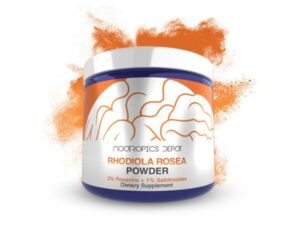
Rhodiola Rosea Extract Powder | Minimum 3% Rosavins by Nootropics Depot

Rhodiola Rosea Capsules | 500mg | 3% Salidroside by Nootropics Depot

Rhodiola Rosea by DoubleWood Supplements
It’s essential to be aware of the potential for adulteration and low-quality products in the supplement market. Always purchase from trusted sources and be cautious of brands making exaggerated or unsubstantiated claims.
Rhodiola Rosea Discussions on Reddit
Experiences with Rhodiola Rosea
Rhodiola is amazing… and its also an endangered plant. If you are going to use it, please make sure it from a seriously sustainable source. Mountain rose herbs is a great place. Sustainable Rhodiola is expensive af.
u/SweetJacqueline in discussion ‘I can’t stop taking rhodiola rosea’
Many Reddit users report positive experiences with Rhodiola Rosea, citing benefits such as improved mood, increased energy, and enhanced cognitive function. However, some users also express concerns about the sustainability and potential overharvesting of wild Rhodiola Rosea populations.
Potential Dependence and Withdrawal
It is addictive. It’s an irreversible MAOI B. Irreversible means it builds up in your body as you use it and takes more time to clear as well, unlike a reversible one where you reset within a day or so.
u/Star_Leopard in discussion ‘I can’t stop taking rhodiola rosea’
Some Reddit users have reported experiences of dependence and withdrawal symptoms when discontinuing Rhodiola Rosea after prolonged use. While more research is needed to fully understand the potential for addiction and withdrawal, it’s important to use Rhodiola Rosea responsibly and under the guidance of a qualified healthcare professional.
Stacking and Synergies
You might want to pair the Rhodiola with Skullcap, or Lion’s Mane (I like the Erinamax kind but ymmv). I’ve been using Rhodiola for years and these kinds of other noots help with the laziness you experience from RR
u/Titouan_Charles in discussion ‘Rhodiola Rosea’
Rhodiola Rosea is often combined with other nootropics and adaptogens for synergistic effects. Reddit users share their experiences stacking Rhodiola Rosea with compounds like Skullcap, Lion’s Mane, and others to optimize cognitive performance and overall well-being.
Frequently Asked Questions About Rhodiola Rosea
1. What is the proper dosage for Rhodiola Rosea?
The typical dosage range for Rhodiola Rosea is 100-600 mg per day, divided into two or three doses. It’s essential to choose a standardized extract containing 3% rosavins and 1% salidroside for optimal potency and consistency.
2. Are there any side effects associated with Rhodiola Rosea?
While generally well-tolerated, some users may experience side effects such as insomnia, irritability, and gastrointestinal issues.
3. Can Rhodiola Rosea interact with medications?
Yes, Rhodiola Rosea may interact with certain medications, particularly MAOIs and other drugs that affect serotonin levels. Always consult your healthcare provider before combining Rhodiola Rosea with any medications.
4. How long does it take for Rhodiola Rosea to start working?
The onset of effects may vary from person to person, but many users report feeling the benefits of Rhodiola Rosea within a few days to a week of consistent use.
5. Is Rhodiola Rosea safe for long-term use?
While Rhodiola Rosea is generally considered safe, long-term use may lead to tolerance or dependence in some individuals. Cycling the supplement, with breaks every few weeks, can help maintain its effectiveness and minimize potential risks.
Conclusion
Rhodiola Rosea is a powerful adaptogenic herb with a long history of traditional use and growing scientific support for its stress-reducing, mood-enhancing, and cognitive-boosting properties. As with any supplement, it’s crucial to approach Rhodiola Rosea with caution and respect, carefully considering individual needs, potential interactions, and sustainability concerns.
At Holistic Nootropics, we believe in empowering our readers with the knowledge and resources needed to make informed decisions about their health and well-being. By providing comprehensive, evidence-based information on nootropics like Rhodiola Rosea, we hope to support your journey towards optimal cognitive performance and overall wellness.
Remember, while Rhodiola Rosea can be a valuable tool in your nootropic arsenal, it’s just one piece of the puzzle. A truly holistic approach to cognitive enhancement should encompass a balanced diet, regular exercise, stress management, and quality sleep, in addition to carefully selected supplements.
We encourage you to explore the wealth of resources available on Holistic Nootropics, including our in-depth guides, podcast episodes, and articles, as you continue your journey towards optimal brain health and performance. If you have any questions, experiences, or insights to share, we invite you to join the conversation in the comments section below.
References:
[1] Olsson EM, von Scheele B, Panossian AG. A randomised, double-blind, placebo-controlled, parallel-group study of the standardised extract shr-5 of the roots of Rhodiola rosea in the treatment of subjects with stress-related fatigue. Planta Med. 2009;75(2):105-12. doi: 10.1055/s-0028-1088346. https://pubmed.ncbi.nlm.nih.gov/19016404/
[2] Qu ZQ, Zhou Y, Zeng YS, Li Y, Chung P. Pretreatment with Rhodiola rosea extract reduces cognitive impairment induced by intracerebroventricular streptozotocin in rats: implication of anti-oxidative and neuroprotective effects. Biomed Environ Sci. 2009;22(4):318-26. doi: 10.1016/S0895-3988(10)60062-3. https://pubmed.ncbi.nlm.nih.gov/19950527/
[3] Mao JJ, Xie SX, Zee J, Soeller I, Li QS, Rockwell K, Amsterdam JD. Rhodiola rosea versus sertraline for major depressive disorder: A randomized placebo-controlled trial. Phytomedicine. 2015;22(3):394-9. doi: 10.1016/j.phymed.2015.01.010. https://pubmed.ncbi.nlm.nih.gov/25837277/
[4] De Bock K, Eijnde BO, Ramaekers M, Hespel P. Acute Rhodiola rosea intake can improve endurance exercise performance. Int J Sport Nutr Exerc Metab. 2004;14(3):298-307. doi: 10.1123/ijsnem.14.3.298. https://pubmed.ncbi.nlm.nih.gov/15256690/

